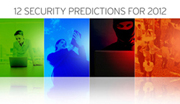TROJ_PIDIEF
Windows 2000, Windows XP, Windows Server 2003


Threat Type: Trojan
Destructiveness: No
Encrypted:
In the wild: Yes
OVERVIEW
This description is based is a compiled analysis of several variants of TROJ_PIDIEF. Note that specific data such as file names and registry values may vary for each variant.
This Trojan arrives as an attachment to email messages spammed by other malware/grayware or malicious users. It arrives on a system as a file dropped by other malware or as a file downloaded unknowingly by users when visiting malicious sites.
TECHNICAL DETAILS
Arrival Details
This Trojan arrives as an attachment to email messages spammed by other malware/grayware or malicious users.
It arrives on a system as a file dropped by other malware or as a file downloaded unknowingly by users when visiting malicious sites.
Installation
This Trojan drops the following non-malicious files:
- %User Temp%\{malware file name}.pdf
- {malware path}\{random characters}
(Note: %User Temp% is the current user's Temp folder, which is usually C:\Documents and Settings\{user name}\Local Settings\Temp on Windows 2000, XP, and Server 2003.)
NOTES:
This malware family is known to take advantage of software vulnerabilities, particularly vulnerabilities found in certain versions of Adobe programs. Once a variant successfully exploits a vulnerability, the variant usually drops another malware onto the affected system.
The dropped malware are then executed on the affected system. This routine ensures that the behavior of the dropped malware is exhibited on the affected system.
This description is based is a compiled analysis of several variants of TROJ_PIDIEF. Note that specific data such as file names and registry values may vary for each variant.
SOLUTION
Trend customers:
Keep your pattern and scan engine files updated. Trend Micro antivirus software can clean or remove most types of computer threats. Malware, though, such as Trojans, scripts, overwriting viruses and joke programs which are identified as uncleanable, should simply be deleted.
All Internet users:
- Use HouseCall - the Trend Micro online threat scanner to check for malware that may already be on your PC.
- Catch malware/grayware before they affect your PC or network. Secure your Web world with Trend Micro products that offer the best anti-threat and content security solutions for home users, corporate users, and ISPs. Go here for more information on Trend Micro products that fit your needs.
Did this description help? Tell us how we did.


